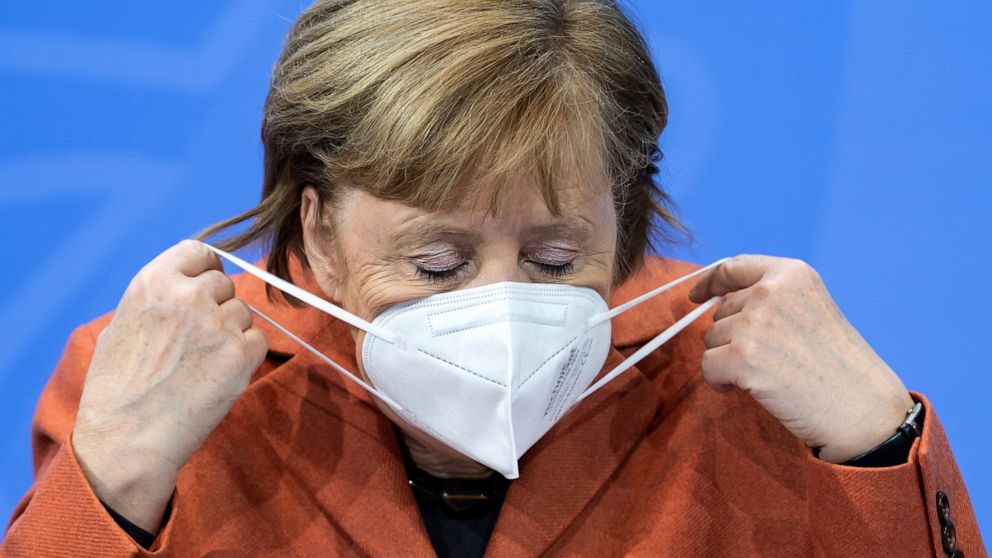Due to the explosive growth of the virus epidemic in Germany, a national Easter campaign with the motto "Staying Home" is being launched. During this year's Easter weekend, private and public life will be stopped. People are urged to stay at home for the duration of the five-day holiday.
The German government is introducing further restrictions for the Easter holidays. During the long weekend of this year's Easter, which lasts from April 1 to 5, private and public life will be practically stopped, and grocery stores will only be able to open on Saturday. People are urged to stay at home for the duration of the five-day holiday.
German leaders have agreed to maintain the restrictions in place due to the coronavirus epidemic in the country until at least April 18, and to introduce further restrictions for the Easter holidays in order to curb the growing wave of infections.
After 11 hours of negotiations, Chancellor Angela Merkel and the leaders of the federal states reached an agreement early Tuesday on how to continue the fight against the pandemic.
According to their agreement, during the long weekend of this year's Easter from April 1 to 5, private and public life will be practically stopped, and grocery stores will only be able to open on Saturday. People are urged to stay at home for the entire duration of the five-day holiday, the German leaders said in a statement.
Germany is in a "very, very serious" situation because the so-called British mutation of the new type of coronavirus (SARS-CoV-2), the variant marked B.1.1.7, has started a "new epidemic".
This virus variant is "much deadlier, much more contagious and infectious for a longer period of time", so it is necessary to protect yourself differently, explained Angela Merkel, underlining that "unconventional" solutions must also be used.
Such a solution is the national Easter action announced with the motto #OtthonMaradunk (#WirBleibenZuHause), which aims to break the new epidemic wave, added the chancellor.
The online meetings of the federal government and the so-called Prime Ministers' Conference (MPK) - the coordinating body of the provincial heads of government responsible for epidemic prevention - had to be interrupted several times due to heated discussions. Views clashed on a number of issues. For example, the leaders of the northern, coastal provinces, which are less infected and operate a significant tourism sector, tried to make it easier to welcome guests again for the spring break. They argued that they had already suppressed the virus sufficiently and that, thanks to their technological developments, they could handle the accommodation of tourists without a significant increase in contacts with the risk of infection.
Among the chancellor and the 16 provincial heads of government, the view prevailed in all cases that curbing the new wave of epidemics is above all other interests.
Thus, in the document recording the results of the meeting, it was highlighted that due to the exponential, explosive increase in the number of new registered infections per day, the so-called emergency brake system, which was agreed upon at the last meeting held at the beginning of March, must be applied consistently.
The essence of the system is that the restrictions suspended at the beginning of the month due to the easing of the second wave must be reinstated in those provinces, districts or cities in which the so-called seven-day infection frequency, i.e. new infections registered in the previous seven days, is permanently above one hundred for three days in a row number per hundred thousand inhabitants.
This system must also be supplemented with new elements, such as restrictions on going out and the extension of the obligation to wear masks, according to the agreement on Tuesday morning.
According to data from the Robert Koch Institute of Public Health (RKI), the seven-day infection frequency at the national level crossed the 100 limit on Sunday and was already at 108.10 on Tuesday morning.
In the previous 24 hours, 7,485 infections were screened with tests. This is a good thirty percent increase compared to 5,480 a week earlier. Together with new registered infections, SARS-CoV-2 was detected in the bodies of 2,674,710 people.
In connection with the disease caused by the virus (Covid-19), 250 deaths were recorded in one day. This is also an increase from 238 a week earlier. With the new deaths, the number of victims of the epidemic in Germany rose to 74,964.
MTI / Photo: The Associated Press













